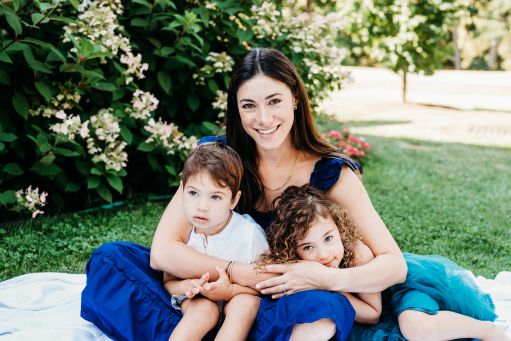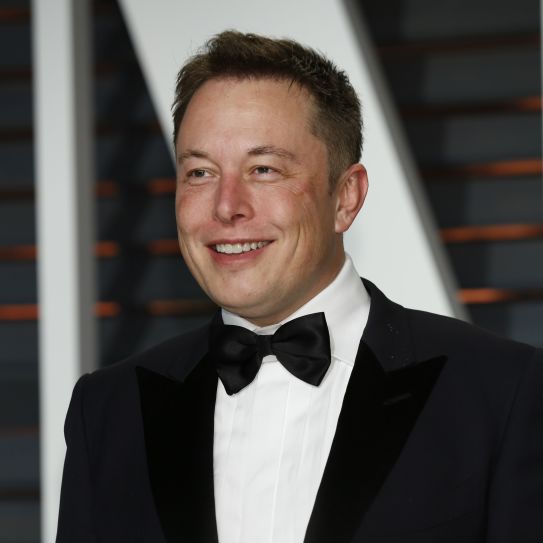
From Founder to CEO: CBS Alum Gabby Slome Shares Her Entrepreneurship Journey
‘For me, it’s definitely about finding my inspiration through things like personal pain points.’
CBS PhD research fellows showcase their work in entrepreneurship and innovation

These are some possible implications of the research presented by three Columbia Business School PhD candidates, all of whom are recipients of an annual fellowship from the Eugene Lang Entrepreneurship Center.
Zaijia Liu PhD '22, Soo Min Cho PhD '23, and Seyed Mansouri PhD '22 recently presented their work at a PhD Research Showcase held at Columbia Business School’s Eugene Lang Entrepreneurship Center.
Here’s a closer look at the PhD candidates’ work.
Author: Zaijia Liu PhD '22
To be an effective leader, should you openly display a range of emotions and risk appearing unstable, or is it better to mute your expressiveness and risk being judged as phony or uncaring?
Good leaders get emotional, according to research by Zaijia Liu PhD '22.
Liu found that leaders who openly expressed a variety of emotions were perceived by employees as more effective because they appeared to be more authentic. Specifically, she found that people tend to trust, admire, and believe leaders they view as authentic, as evidenced by a range of facial expressions.
A leader like Elon Musk, CEO of Tesla and SpaceX, who expresses multiple emotions across different situations, would be perceived as having high emotion variability, notes Liu. In contrast, a leader like Mark Zuckerberg, CEO of the social media website Facebook and its parent company Meta Platforms, who maintains a poker face across the same situations, would be perceived as having a low emotion variability.
The six studies she conducted included surveys with MBA students rating their most recent manager, full-time employees rating their long-term managers, a lab experiment, an analysis of leadership speeches, and ratings of leaders in real team competitions.
In all the studies, “we found that variability in leaders’ emotion expression was associated with greater judgments of authenticity and, consequently, perceptions of greater leadership effectiveness,” says Liu.
Her findings echo the sentiments of Kristin Peck ’99, who in her May commencement address to Columbia Business School’s graduating MBA class of 2022, debunked the idea that CEOs should behave like an “infallible superhero.”
Peck, who is CEO of global animal health company Zoetis, said she believes that caricature has faded dramatically and has been replaced by a leader who is more human and authentic, adding that the concept of the infallible leader “is so 1990s.”

Mark Zuckerberg, CEO of the social media website Facebook and its parent company Meta Platforms, maintains a poker face across the same situations, meaning he would be perceived as less authentic, Liu found.
Author: Soo Min Cho PhD '23
Early-stage start-ups base strategy on information from a variety of sources. How they process that information for optimal long- and short-term strategic decision-making is the question Soo Min Cho PhD '23 sought to answer with her research.
Part of the answer, she found, lies in organizational culture and its ability to incorporate different points of view. Organizational culture consists of both:
To better understand the decision-making dynamics of entrepreneurial ventures, Cho created a new measure she calls emotional/cognitive cultural diversity, which gauges how well a startup culture allows a wide variety of elements and opinions when approaching topics related to strategy.
To measure the diversity, Cho gathered data from several sources, including company reviews on Glassdoor from current and past employees.
She found that early-stage companies that encourage contrasting cognitive approaches—such as both risk-taking and rule-following—are more likely to allow for a broader range of perspectives in decision-making, which benefits both short- and long-term strategies. Furthermore, startups with diverse emotional attributes in their culture are likely to make them pursue more innovative, long-term strategies.
How these broader perspectives ultimately impact a startup’s growth and financial success is a question Cho plans to explore in future research.
Author: Seyed Mansouri PhD '22
If you’re an aspiring entrepreneur from a low-income region, your success may depend on the willingness of your local bank to approve a loan to fund your venture. In wealthier areas, where people have access to personal capital or family loans, access to bank credit doesn’t have much of an impact.
However, research by Seyed Mansouri PhD ’22 found that the willingness of banks to lend capital to entrepreneurs significantly impacts the development of startups in low-income regions and leads to lasting job growth.
“Bank loans are crucial for the size and returns of newborn firms in lower-income counties, which implies that a credit redistribution would have a positive real economic impact,” Mansouri says.
Mansouri’s research indicates that the founding of new companies creates more jobs in these regions than the expansion of existing firms. Thus, a small increase in bank credit to startups in these regions has a significant and lasting impact on increasing employment rates.
More than personal characteristics such as productivity or courage, it is the high cost of starting a business without sufficient access to capital that disproportionately prevents entrepreneurs from building new companies, says Mansouri.
He debunks the notion that “cheap credit attracts less-productive potential entrepreneurs in low-income counties who may miscalculate the value of their business ideas and feel overconfident about their productivity.”
Mansouri’s findings have significant implications for public policy and the importance of providing wider access to credit.
The Lang Center’s offers annual fellowship awards to PhD students whose research relates to entrepreneurship, innovation or venture investing in their dissertations. Each academic year, the program awards up to four students with a fellowship of $5,000.
Click here to read more about the program’s application and eligibility requirements.
To watch the full PhD research fellows showcase click here.

‘For me, it’s definitely about finding my inspiration through things like personal pain points.’

Carolyn Butler ’18 talks about creating a blueprint for the first truly circular business model in the US apparel industry.

Kelly Ifill ’17 chats about career pivots, community, and her commitment to supporting Black and brown entrepreneurs.

Nina Tandon ’12 talks about the origin of EpiBone and overcoming the challenges facing women entrepreneurs.
The COVID-19 pandemic has changed the world of business, while bringing historical inequities and injustice into sharp relief.
Subscribe to Leading Through Change to receive the latest insights from Columbia Business School to help you navigate this unprecedented time.
There was an error, please try again.
Go Back